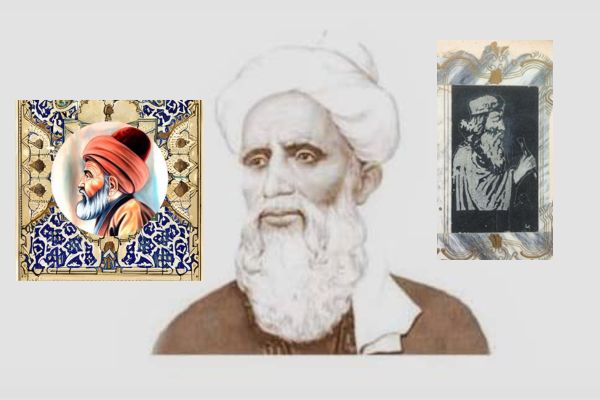Onsori Balkhi, also known as Abul Qasim Hasan Unsuri Balkhi, was a celebrated Persian poet of the 10th and early 11th centuries. Born in Balkh (in present-day Afghanistan), he lived during the golden age of Persian poetry under the Ghaznavid dynasty and served as the chief court poet for the famous Sultan Mahmud of Ghazni. Onsori's poetry and literary prowess made him one of the most prominent figures of his time, and he is remembered for his polished style, eloquent language, and mastery of classical Persian poetic forms.
Onsori’s early life is not well-documented, but he rose to prominence at the Ghaznavid court due to his talent for crafting elegant, sophisticated verse. Sultan Mahmud, a great patron of the arts, gathered many of the period's most brilliant poets, scholars, and scientists at his court, including Ferdowsi, Asadi Tusi, and Farrokhi Sistani. Among them, Onsori held a special position as the chief poet, a title that brought him considerable respect and influence.
Onsori excelled in qasidas (odes), a poetic form often used to praise rulers, celebrate victories, or commemorate significant events. His poems are characterized by their refined language, precise structure, and use of intricate metaphors, showcasing his skill in elevating everyday themes with literary grace. His work celebrated the Ghaznavid court’s grandeur, Sultan Mahmud’s victories, and the virtues of nobility and chivalry. Onsori was also known for his subtle wit and ability to weave humor into his poetry, making his works both enjoyable and intellectually engaging.
In addition to his odes, Onsori wrote lyrical poetry that explored themes of love, nature, and the transient beauty of life, displaying a sensitivity and depth that contributed to his widespread popularity. He had a talent for capturing human emotions in concise, evocative language, which influenced later poets who admired his ability to balance courtly themes with more personal expressions.
One of Onsori’s famous works is a lengthy qasida celebrating Sultan Mahmud’s military campaigns in India, in which he praises the ruler’s bravery and leadership. This work, along with others, reflects the courtly culture of the time and gives insight into the political and social dynamics of the Ghaznavid era. His compositions are significant not only for their artistic merit but also for their historical value, capturing the spirit and values of Persian society during the early Islamic period.
Onsori’s influence extended beyond his lifetime, as his style and themes inspired future Persian poets. His work helped shape the development of Persian court poetry, setting standards of eloquence, formality, and artistic finesse that remained influential for generations. Although some of Onsori’s work has been lost, his surviving poems continue to be appreciated for their technical mastery and are studied as classic examples of Persian court poetry.
Onsori Balkhi died around 1039, but his legacy endures in Persian literature. His skillful blending of praise, humor, and elegance made him a key figure in the history of Persian poetry, and his works remain an integral part of Persian literary heritage, reflecting the cultural richness and intellectual vitality of the Ghaznavid court.
Sokhanvar information
Published on Nov. 7, 2024, 7:16 p.m. by @hamed
- Name: Abul Qasim Hasan
- Persian Name:: نام به فارسی
- Alias: Onsori Balkhi
- Comments: 0
- Views: 193
Works
One of Onsori’s famous works is a lengthy qasida celebrating Sultan Mahmud’s military campaigns in India, in which he praises the ruler’s bravery and leadership. This work, along with others, reflects the courtly culture of the time and gives insight into the political and social dynamics of the Ghaznavid era. His compositions are significant not only for their artistic merit but also for their historical value, capturing the spirit and values of Persian society during the early Islamic period.
Books
- No books added yet.

